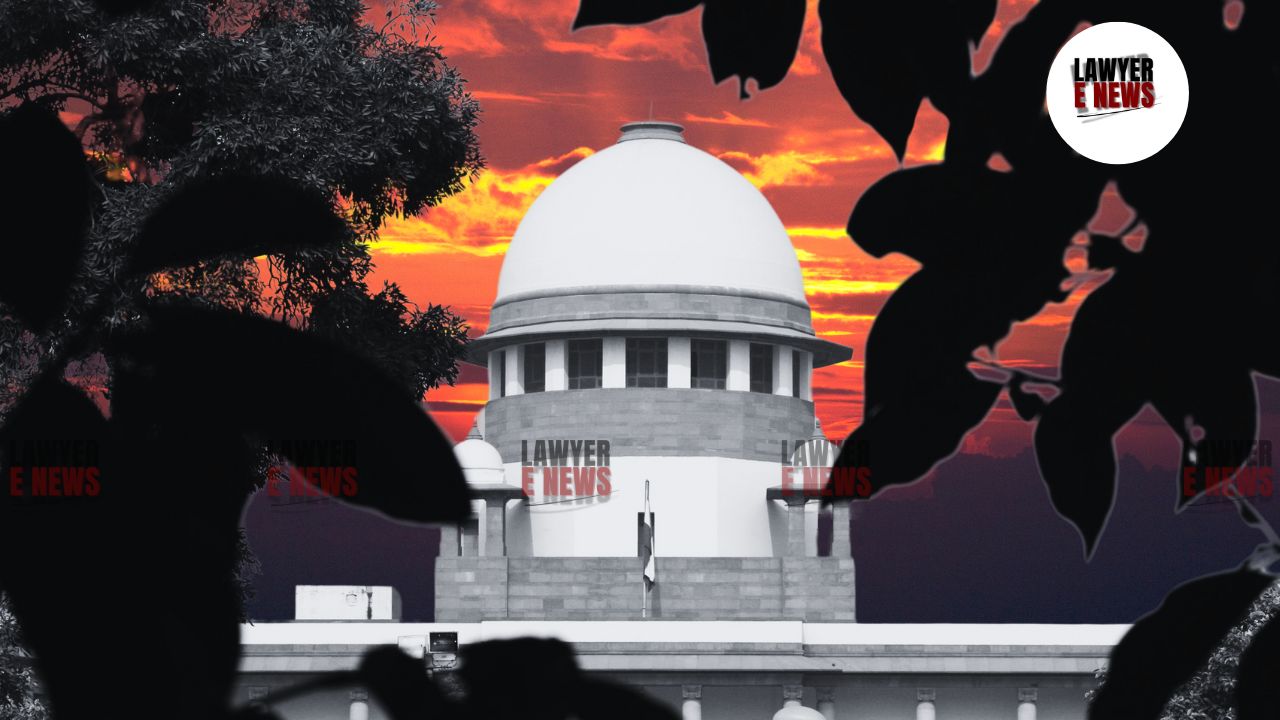-
by Admin
15 February 2026 5:35 AM



Supreme Court of India delivered a significant judgment in the case of Rajesh Mitra & Anr. vs. Karnani Properties Ltd., overturning the eviction orders passed by the Calcutta High Court. The Supreme Court held that the eviction suit, decreed on the basis of an alleged "admission" by the appellant, was improper, as it did not meet the legal standard of a valid admission under Order XII Rule 6 of the Code of Civil Procedure (CPC).
"There Cannot Be an Admission Against Law": Supreme Court Emphasizes Caution in Judgments on Admissions
The case involved a dispute regarding the tenancy rights of the appellants, who were tenants of a property on Park Street, Kolkata. The respondent landlord sought eviction on the grounds that the tenancy, inherited by the appellants from their mother Usha Mitra, had expired in 2014 under the West Bengal Premises Tenancy Act, 1997 (the “1997 Act”). The Single Judge and Division Bench of the Calcutta High Court had both upheld this argument, relying on a statement made by appellant no. 1 in another case, which allegedly amounted to an admission that their mother was the sole tenant.
Order XII Rule 6 CPC allows judgments based on admissions only when those admissions are "clear, unequivocal, and unambiguous," which was not the case here. The so-called admission made by appellant no.1 in another unrelated case did not meet this standard.
The court emphasized that admissions made in one case cannot automatically be applied to another, especially when the legal rights at issue (in this case, tenancy rights) are contested.
The case dates back to an eviction suit filed by the respondent, Karnani Properties Ltd., against the appellants, Rajesh Mitra and his sibling. The appellants had inherited the tenancy after the death of their father in 1970 under the West Bengal Premises Tenancy Act, 1956 (the “1956 Act”). However, their mother, Usha Mitra, continued as the primary tenant until her death in 2009.
The respondent argued that under Section 2(g) of the 1997 Act, the appellants' right to stay in the property ended in 2014—five years after their mother’s death. The appellants countered this, asserting that their tenancy was protected under the 1956 Act and could not be automatically extinguished by the 1997 Act.
The central question before the court was whether the appellants’ tenancy rights, inherited in 1970, were extinguished by the 1997 Act. The court examined:
The interpretation of "tenant" under Section 2(g) of the 1997 Act, which limits the tenancy rights of heirs to five years after the death of the original tenant.
The validity of the respondent’s reliance on an "admission" made by appellant no. 1 in another court proceeding, where he admitted that the tenancy was in his mother's name.
Admissions under Order XII Rule 6 should be treated with caution. Courts must ensure that such admissions are not only factual but also legally relevant. The court noted, “What has been given to the appellants under law cannot be taken away on the basis of an unclear deposition.”
The alleged admission made in another case was insufficient to deny the appellants their right to contest the claim of eviction. As the Supreme Court remarked, “There cannot be an admission against law.”
Judgment Details
The Supreme Court set aside the orders of the Single Judge and the Division Bench of the Calcutta High Court. It held that the appellants had inherited the tenancy jointly with their mother under the 1956 Act, and their rights could not be retrospectively taken away by the 1997 Act unless explicitly stated.
No Retrospective Application Without Clear Intention: The court emphasized that statutory laws are generally prospective in nature, and unless clearly stated, the 1997 Act cannot be applied retrospectively to extinguish pre-existing tenancy rights under the 1956 Act.
Loose Drafting of the 1997 Act: The court acknowledged the ambiguity in the wording of Section 2(g) of the 1997 Act, which created confusion about its retrospective application.
The Supreme Court's decision in Rajesh Mitra & Anr. vs. Karnani Properties Ltd. reinforces the principle that statutory rights, once vested, cannot be undone without explicit legislative intent. The court's careful examination of "admissions" under CPC also serves as a critical reminder for lower courts to exercise discretion when dealing with admissions that could affect substantive rights.
Date of Decision: September 20, 2024
Rajesh Mitra & Anr. vs. Karnani Properties Ltd.
